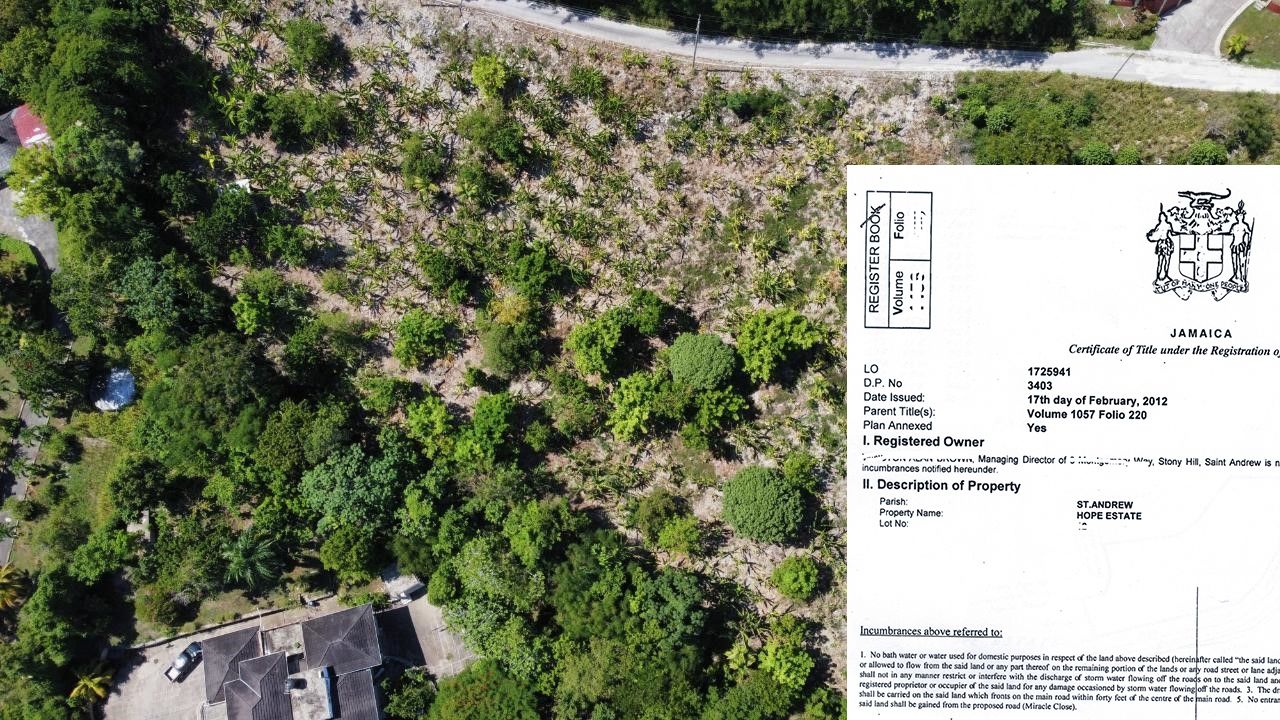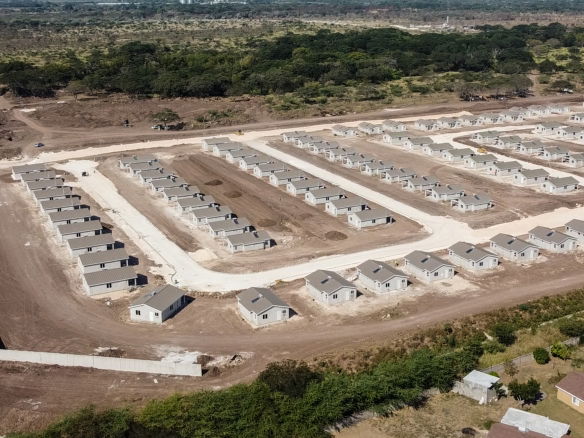Obtaining a land title in Jamaica is a crucial step in ensuring that your property is legally recognized. Whether you’ve recently acquired a piece of land, inherited property, or lost your original title, this guide will walk you through the process of registering land in Jamaica, understanding legal terminologies, and navigating common challenges.
Why Register Your Land in Jamaica?
Registering land in Jamaica provides legal proof of ownership, safeguarding your property rights. Without a registered title, proving ownership can become complex, especially in cases of disputes, sales, or inheritance. Whether you’ve lost your land title, were gifted land, or purchased it, securing a registered title ensures peace of mind and legal protection.
Step-by-Step Process to Obtain a Land Title in Jamaica
The Land Titles Division of the National Land Agency (NLA), located at 93 Hanover Street, Kingston, is responsible for processing applications for land titles in Jamaica. The process involves several steps, documentation, and legal requirements.
1. Application to Register Land
If you own land in Jamaica and do not have a registered title, you can apply to the Registrar of Titles to have the land registered. Here’s how:
Required Documents:
- Application Form: Prescribed by the Registration of Titles Act and signed by the applicant.
- Statutory Declaration: A written statement confirmed by oath to prove possession.
- Supporting Statutory Declarations: Two additional declarations from persons who have known the land for at least 30 years, proving ownership rights.
- Certificate of Payment for Property Tax: Must be current and up-to-date.
- Survey Diagram: A pre-checked survey diagram is required if the land is being registered by plan.
- Proof of Ownership: Any document that proves ownership, such as a receipt, conveyance, probate, or certificate of compliance under the Facilities for Titles Act.
Additional Considerations:
- If you’re registering land without a plan, the land must be described in detail, including distances along each boundary, compass directions, names of adjoining owners, and land valuation reference numbers for abutting parcels.
2. Payment of Stamp Duty and Transfer Tax
Stamp Duty and Transfer Tax must be paid to the Commissioner or Deputy Stamp Commissioner of the Taxpayer Audit and Assessment Department unless the document falls into an exempt category.
3. Registration Fees and Submission
When submitting your documents to the Titles Office, you must pay the required registration fees. An official receipt will be issued, containing a document number and the name of the person who applied. This receipt serves as your application number, which is crucial for tracking your application status.
4. Document Verification and Survey Check
Your application will undergo a series of checks, including:
- Verification of all documents.
- Submission of the survey diagram to the Surveys and Mapping Division to ensure the land isn’t already registered and that the plan is acceptable.
- Review by the Referee of Titles.
5. Publication of Notice
Upon approval by the Referee of Titles, you will be directed to publish a notice of your application in a specified newspaper. This notice must appear for a period determined by the Referee.
6. Issuance of Certificate of Title
If no caveat (objection) is lodged against the application and no court action is commenced, your Certificate of Title will be issued after the first appearance of the advertisement in the newspaper.
7. Caveats Against Registering Land
If someone else claims ownership of the land or has any mortgage, lien, or other interest against it, they may lodge a caveat within the time prescribed by the Referee of Titles. The caveat must be supported by court action within 30 days, or it will lapse, allowing the registration to proceed.
Replacing a Lost or Destroyed Title
If your land title has been lost or destroyed, you must apply for a new Certificate of Title by providing a statutory declaration proving the loss or destruction. The application must include:
- A reference to the land description as set out in the lost or destroyed Title.
- The Volume and Folio numbers (which can be obtained through a Title search if unknown).
- The actual value of the land, including all improvements.
- Satisfactory evidence that the land title has been lost or destroyed.
Legal Assistance: It’s advisable to retain the services of an Attorney-at-Law to ensure all legal requirements are met during the application process.
Understanding Key Legal Terms in Land Titling
What is a Power of Attorney?
A Power of Attorney is a legal document by which an individual or company appoints another person or company to represent them or act on their behalf in legal matters, including land transfers. If the Power of Attorney is to be used for executing documents submitted for registration, it must be stamped and deposited at the Office of Titles.
Joint Tenancy vs. Tenants-in-Common
- Joint Tenancy: This form of ownership allows the right of survivorship, meaning if one joint tenant dies, their interest automatically passes to the surviving joint tenants. Joint tenancy requires that all tenants acquire their interests simultaneously, and each tenant holds an equal share.
- Tenants-in-Common: Unlike joint tenancy, tenants-in-common do not have the right of survivorship. When a tenant-in-common dies, their share of the property passes according to their will or under the Intestate Estates and Property Charges Act if there is no will. Tenants-in-common may hold unequal shares in the property.
Obtaining a land title in Jamaica is a critical legal process that ensures your property rights are recognized and protected. Whether you’re registering land for the first time or replacing a lost title, understanding the steps, required documents, and potential challenges is essential. If you’re unsure about any part of the process, it’s always best to consult with a legal professional to guide you through the complexities of land registration in Jamaica.
For more detailed information and assistance, consider visiting the Land Titles Division of the NLA or consulting with a qualified attorney to ensure your application is processed smoothly and efficiently. You can also check the NLA website for relevant and up-to-date information
This article covers all the necessary details about obtaining a land title in Jamaica, including legal terms and FAQs. It’s designed to be comprehensive and useful for anyone looking to navigate the land registration process in Jamaica.
Frequently Asked Questions (FAQs)
Who can be appointed under the Power of Attorney?
Anyone who is of sound mind and has attained the age of majority can be appointed under a Power of Attorney.
What happens if a caveat is lodged against my application?
If a caveat is lodged, it must be supported by court action within 30 days. Failure to commence court proceedings will result in the caveat lapsing, allowing the registration to continue.
How can I recover a lost or destroyed land title?
To recover a lost or destroyed land title, you must apply to the Registrar of Titles with a statutory declaration proving the loss or destruction and provide evidence of ownership. The application must include the description of the land, Volume and Folio numbers, and the land’s value.





